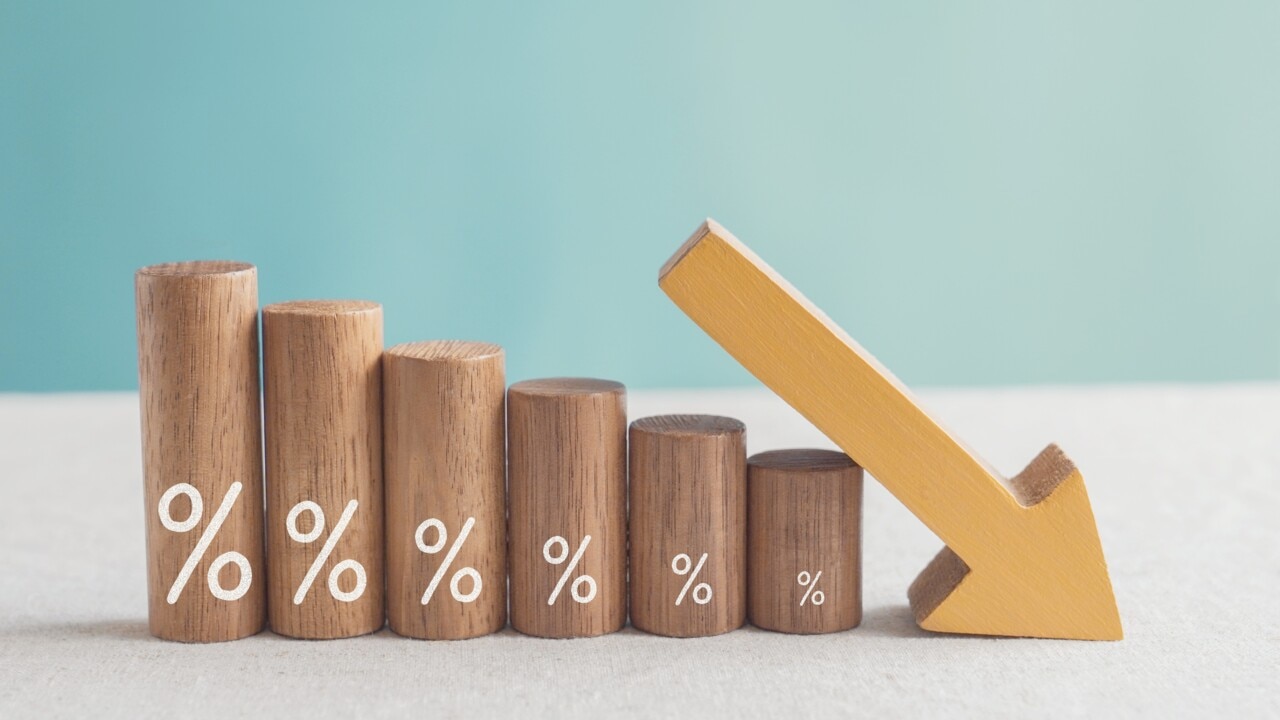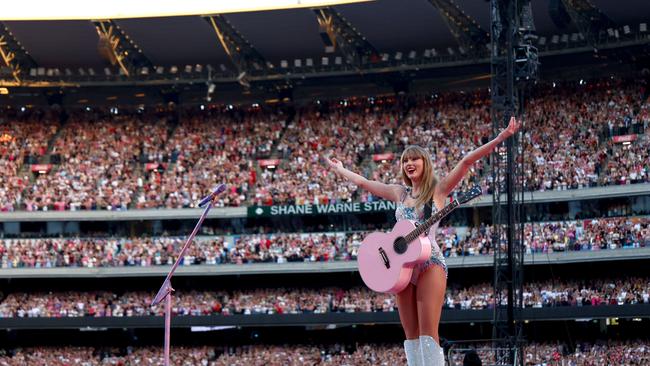Swift-mania backlash reflects class war ugliness in tax and housing debates | David Penberthy
The joyless backlash is symptomatic of a broader malaise which has risen to the fore amid this cost of living squeeze, writes David Penberthy.

SA News
Don't miss out on the headlines from SA News. Followed categories will be added to My News.
This is a column about resentment. If it was a university thesis it would be entitled “Haters gonna hate: Taylor Swift and the politics of envy”.
For all the joy generated by Tay Tay’s presence in Australia, her tour has also flushed out a stream of negativity surrounding the apparent profligacy of those who are “lucky” enough to attend.
There is a redolent view in the community that there is something tasteless and self-indulgent in the midst of a cost of living crisis in paying $2000-$3000 to cover the cost of tickets, flights and accommodation to see a pop concert.
You can understand people who are genuinely on the bones of their bums feeling left out when it comes to pretty much everything, be it expensive tickets to a concert, their inability to afford the latest technology or streaming services, or the casual nature with which so many people smash their credit cards ordering food they could easily prepare themselves via Uber Eats.
But with that caveat aside, a lot of the Taylor knockers simply need to lighten up, and perhaps reflect on distant moments of youthful joy in their own lives, while also acknowledging that plenty of people have all sorts of mad passions which cost them much more than attending a concert.

Taylor-mania is no different from Beatlemania, the advent of Elvis, the adulation received by the Stones or the Bay City Rollers or Kiss.
People, young people, have always gone through these periods of total madness on behalf of artists they adore.
And when you put Taylor Swift into the above category, I’d say that as a parent and a long-term fan of hers, I’m pretty happy that my 21-year-old daughter idolises a woman who is smart, creative, dignified and in total control of her own business affairs.
Beyond that, there’s an unpleasant judgmentalism in the assertion that people who spend their money on all things Swift must have rocks in their head.
What’s the difference between spending thousands of dollars a year on Taylor Swift, or the same amount (or more) on embroidery, fishing, football club memberships or meeting the payments on your caravan?
In a free country people are allowed to spend their money however they like. The Americans have a great term for it, one they even enshrined in their Declaration of Independence: life, liberty and the pursuit of happiness.
To borrow a line from another female artist, if it makes you happy, it can’t be that bad.
This Taylor-hate is symptomatic of a broader malaise which has risen to the fore amid this cost of living squeeze.
It is most evident in two policy areas – tax and housing, policy battlegrounds which are more bitterly contested now than they have ever been.
Let’s abandon any suggestion that we should be deploying the violins on behalf of everyone who missed out on the stage three tax cuts as they were originally promised.
None of these people can cry poor.
It’s not like the well-off have been forced to pay more tax; rather, they are now getting a much smaller tax break than they had been promised, before Anthony Albanese broke his repeated promise not to do so.
But while none of these people are doing it tough in a financial sense, what is galling is the triumphalist, class war tone of those who cheered Albanese for breaking his promise.
There’s a “sucked in” quality to it, as if these whingeing rich bastards have got what they deserved, and that anyone who dare point out that this was in fact a massive broken promise is just some toffy sook having a moan about their lot in life.
There is a sense – one which Albanese has benefited from politically, if not exploited – that being rich is kind of suss in Australia.
As opposed to being the result of years of hard work and risk-taking where people have built up wealth through long hours, innovation, while also creating work for a lot of other people in the process.


If it’s real class war ugliness you’re after, look at the debate around the so-called “morality” of owning multiple properties in the middle of a rental and housing stock squeeze.
The Greens in particular have almost made it a source of personal shame that anyone should have an investment property. (That’s despite the fact that several members of their own parliamentary team have multiple homes, suggesting their position is both expedient and a case of ‘do as we say and not as we do’).
There is a growing sense in the community, evidenced by Adam Bandt’s call for Albanese to break (another) promise and go after negative gearing, that owning more than one home is all about personal greed.
Again, if people have worked for their own money, they should be allowed to invest it how they see fit.
And with an apparent need to state the obvious for the Greens, the net effect of multiple home ownership is that there are more rental properties on the market, for people who either can’t afford or don’t want the financial burden of owning a home in their own name.
Huge housing developments would never get off the ground without investors rich enough to buy a chunk of the homes off plan.
The person who has copped more raised eyebrows on this question than anyone in South Australia is the Opposition Leader David Speirs.
As to his ownership of 13 properties, I’d say two things – he paid for them all himself, and if he didn’t own them, there would be 13 fewer houses available for rent in SA.
I suspect right now that for David Speirs, being regarded as a canny and frugal investor is less of a gold star than a black mark against his name, even though he is trying to promote himself as the best person to run the state’s economy.
I would remind people again of that great quote from the American economist Thomas Sowell: “What exactly is your ‘fair share’ of what someone else has worked for?”
More Coverage
Originally published as Swift-mania backlash reflects class war ugliness in tax and housing debates | David Penberthy





